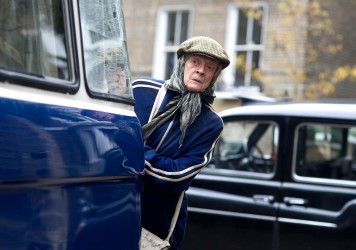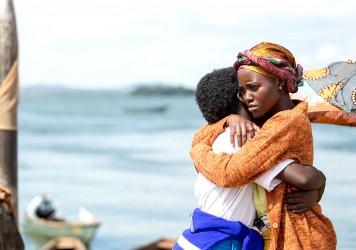The dramatic story of Partition in India is rendered as a glossy, light comedy in this underwhelming effort from Gurinder Chadha.
It’s hard to think of a way to tell the fascinating and prescient story of the Partition of India that would be less exciting than Gurinder Chadha’s Viceroy’s House. The film doesn’t contain a single believable character, a remarkable feat considering that everyone on screen is based on a real person.
Every line of dialogue is loaded with gloopy exposition, undercutting the viewer’s basic desire to search for ambiguities or shades of grey. No nuance is left to chance. Everything is spoken out loud. Naturally, the story is told through the eyes of rich white colonialist oppressors, albeit those benign few who have accepted that the game of empire-building is all but lost.
Hugh Bonneville makes for an underpowered and unlikely Lord Mountbatten, instructed by Winston Churchill to pass home rule back to India. But, sectarian in-fighting between muslims and sikhs means that geopolitical concessions and fixes need to be made.
The quaint, luxuriant paradise of the Viceroy’s house soon plays host to a bureaucratic nightmare, but the film prizes the drama of Western politics over the widespread nightmare of death and displacement. In fact, this is one of those films that ends at the exact point it gets interesting – as Pakistan is born as a new nation. Paul Mayeda Berges and Moira Buffini’s lacklustre script refuses to locate an original entry point into the material, while lip service to the locals arrives in the form of a corny, impossible romance.
It’s quite obvious that Gillian Anderson is the best thing in the film, haughty but humane as the empathetic Edwina Mountbatten. It’s a shame, then, that as the story rolls on, it becomes about red-faced men talking in rooms, and she gets nudged to the sidelines. This is personal territory for director Chadha, but it feels like she’s selling her own rich family history short.
Published 2 Mar 2017
An interesting time to hear the story of a nation mercilessly sliced in two.
Too quaint, too polite, too focused on the light comedy rather than the terrifying drama.
The Unofficial Gillian Anderson Fan Club will be happy enough with this.

A return to that sunny outpost for the elderly and infirm ushers lightly diminishing returns.

Alan Bennett’s hit autobiographical play from 1999 receives a mild but quietly magical screen adaptation.

Chess gets the Disney sports movie treatment in this likeable tale of strategy and empowerment from Mira Nair.